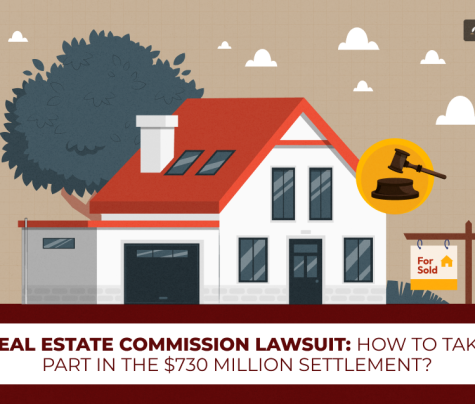
For those handling the estate of a departed loved one in Nevada, navigating the complexity of probate can be a difficult undertaking. This is where understanding the probate in Nevada comes into play!
To guarantee that you can disperse the assets in accordance with the deceased’s intentions while abiding by state rules, it is crucial to understand the process of probate in Nevada.
If that is what you are searching for, then I have you covered! In addition to outlining common problems to avoid, this article will walk you through the crucial processes in the probate procedure.
Understanding Probate: A Brief Overview

Before you get to understand the specifics of what probate in Nevada consists of, it is essential that you understand this legal process. So, what is Probate in the first place?
In layman’s terms, probate is the process through which the legal system and the court validate the will of a deceased person and administer their estate.
During probate, the court ensures the settlement of debts and the payment of taxes of the deceased person. Additionally, it also takes care of the distribution of remaining assets to beneficiaries as per the will.
This process, as well as the cost of probate, varies from state to state, making it vital for residents of Nevada to understand the specific laws that govern probate in their jurisdiction.
The Role of Probate in Estate Administration

Probate serves multiple key functions in estate administration. First, it confirms the authenticity of the deceased’s will, which serves as the guiding document for asset distribution.
Second, it selects a personal representative or executor who will oversee the estate, pay off debts, and equally distribute assets in accordance with the law.
In order to respect the deceased’s desires and comply with legal regulations, this position is crucial. The probate process also offers a formal procedure for settling disagreements amongst beneficiaries.
When family members cannot agree on how to read the will or divide the assets, the probate court can act as an impartial forum for negotiation and settlement.
Long-term disputes that could otherwise cause the family to experience mental anguish and financial hardship might be avoided in this way.
Probate Laws Specific to Nevada
Nevada has a set of unique laws that dictate how probate is conducted in the state.
For instance, in Nevada, if the value of a decedent’s estate is less than $100,000, a simple probate process may be available. This allows for more straightforward and expedited settlements.
Additionally, Nevada law allows for the creation of a small estate affidavit, which can significantly streamline the process and reduce court involvement when applicable.
Another noteworthy aspect of Nevada probate law is its treatment of community property. In Nevada, assets acquired during marriage are typically community property. This can affect how the estate is divided among heirs.
Understanding the implications of community property laws is crucial for individuals planning their estates, as it can influence both tax liabilities and the distribution of assets among surviving spouses and children.
Essential Steps in the Probate Process
Understanding the essential steps in the probate process can help families navigate what can often be a complex and emotional experience.
Below are the critical phases of the process.
Initiating the Probate Process
The probate process begins by filing the will with the appropriate Nevada probate court. This step formally opens the probate case and starts the legal proceedings.
It’s essential to gather all necessary documents, including the death certificate and the original will, and submit them promptly to avoid delays.
Additionally, it may be beneficial to consult with a Nevada probate attorney who can provide guidance on the specific requirements of the court and help ensure that all paperwork is completed accurately.
This initial phase sets the tone for the entire process, making it crucial to approach it with diligence and care.
Identifying and Appraising the Estate’s Assets
Once probate starts, the executor must identify and appraise all assets belonging to the estate. This may include real estate, bank accounts, investments, and personal property.
Accurate appraisals are vital, as they establish the estate’s total value and help in settling debts and distributing assets fairly among beneficiaries.
Executors often enlist the help of professional appraisers to ensure the correct valuation of all assets. This can also help in avoiding disputes among heirs.
Furthermore, it’s important to document the condition and value of each asset thoroughly, as this information may be required during the probate process and could be beneficial if any challenges arise later on.
Paying Off Debts and Taxes
Before distributing assets to beneficiaries, the executor needs to settle any outstanding debts and taxes associated with the estate. This may involve paying creditors and filing the necessary tax returns.
Neglecting this step can lead to legal complications and may even delay the distribution of assets to beneficiaries.
Executors should be prepared to communicate with creditors and may need to negotiate payment terms or settle debts for less than the full amount.
Additionally, understanding the tax implications of the estate is crucial; this includes estate taxes and any income taxes owed on income generated by the estate during the probate process.
Proper management of these financial responsibilities is essential to ensuring a smooth transition for beneficiaries.
Distributing the Remaining Assets
After the settlement of debts and taxes, the executor can proceed with distributing the remaining assets according to the wishes expressed in the will.
If no will exists, Nevada inheritance laws dictate how assets are divided among surviving family members.
Clear communication with beneficiaries throughout this stage can help minimize confusion and potential disputes.
Executors should provide regular updates on the status of the probate process and be transparent about any challenges that they encounter along the way.
This openness can foster trust among beneficiaries and help maintain family harmony during what is often a difficult time.
Additionally, it may be wise to consider the emotional impact of asset distribution, as certain items may hold significant sentimental value, and addressing these feelings can be just as important as the legal aspects of the process.
Common Pitfalls in Estate Administration
While the probate process is designed to be orderly, several common pitfalls can arise, leading to complications and frustrations.
Avoiding Delays in the Probate Process
One of the most significant challenges in probate is avoiding unnecessary delays.
Failure to file necessary documents on time, lack of proper communication among parties, or disputes among beneficiaries can extend the probate timeline.
Acting promptly and maintaining clear lines of communication can help mitigate these delays significantly.
Dealing with Disputes Among Beneficiaries
Disputes among beneficiaries can complicate the estate administration process. Emotional tensions may arise, especially if the deceased’s wishes are perceived as unfair or ambiguous.
Addressing these conflicts through open dialogue and, if necessary, mediation can help to ensure a smoother distribution process.
Managing Insufficient Estate Assets
In cases where the estate lacks sufficient assets to cover debts, it can create a significant challenge for the executor.
Nevada law outlines specific procedures for handling such situations, including potential negotiations with creditors.
Understanding these procedures and seeking legal counsel when necessary can help navigate these complex issues effectively.
The Role of a Probate Lawyer in Nevada
Given the complexities involved in probate, having a knowledgeable probate lawyer can make a substantial difference in the process.
When to Consult a Probate Lawyer
Consulting a probate lawyer is advisable at the onset of the probate process. Their expertise can guide you through legal requirements and help you avoid potential pitfalls.
If disputes arise or the estate is particularly complex, a probate lawyer’s assistance becomes even more critical.
How a Probate Lawyer Can Help
A probate lawyer can help manage the entire process. From filing the initial documents to guiding executors through difficult financial and legal hurdles, they can help you!
Additionally, they can provide invaluable advice on how to comply with Nevada laws. This ensures timely and compliant administration of the estate. Therefore, it alleviates much of the stress that handling estate matters involves.
In summary, understanding the probate process in Nevada is essential for effective estate administration.
It helps in recognizing the steps involved and being mindful of common pitfalls. This in turn, helps families navigate the challenging time with confidence and clarity.
Read Also:
- Elder Law Attorney: Expert Guidance for Senior Legal Matters
- Family Law Attorney Illinois: Expert Guidance for Legal Matters
- 10 Situations Demanding a Lawyer: When to Seek Legal Counsel











0 Reply
No comments yet.